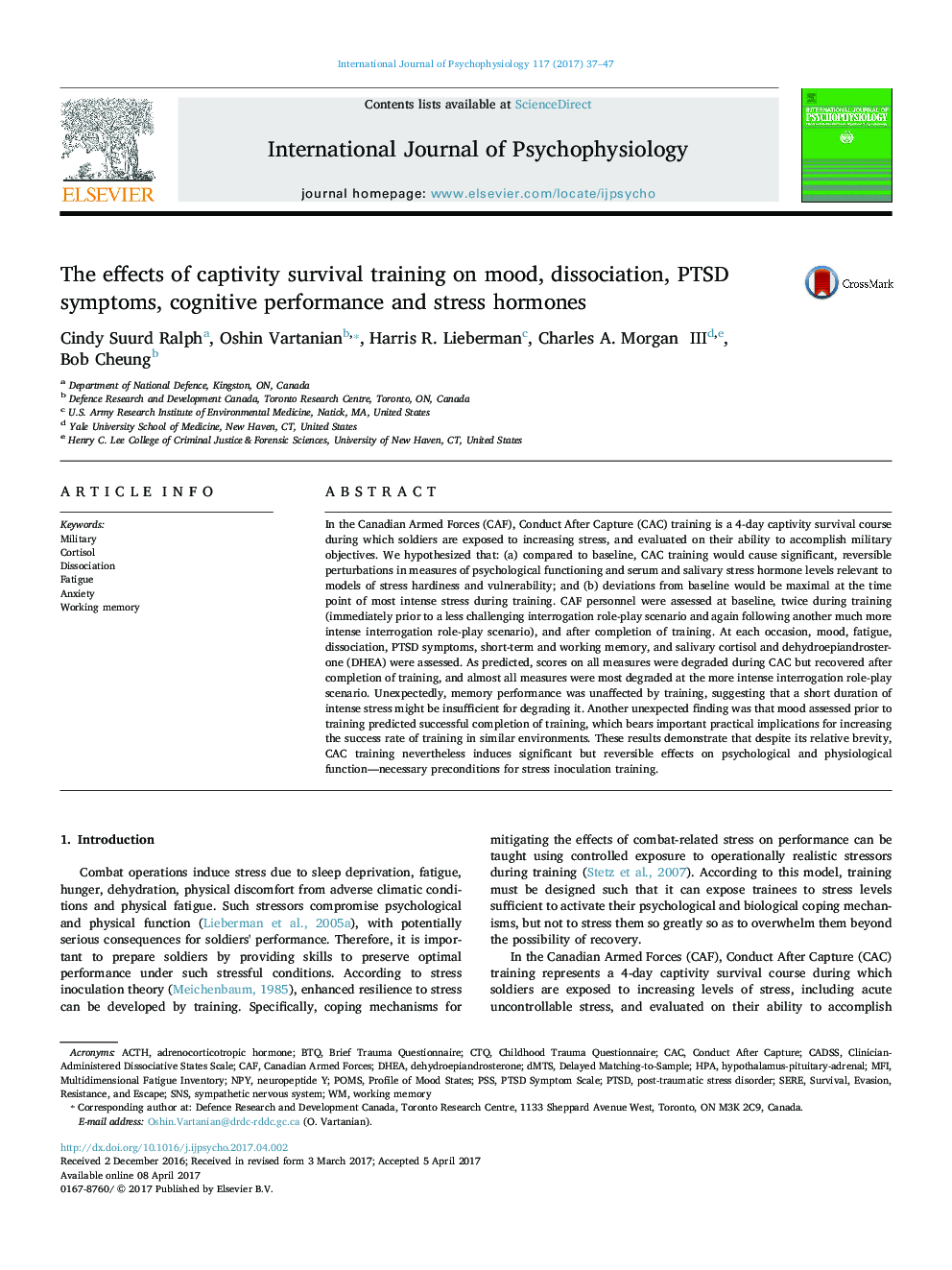| کد مقاله | کد نشریه | سال انتشار | مقاله انگلیسی | نسخه تمام متن |
|---|---|---|---|---|
| 5042235 | 1474379 | 2017 | 11 صفحه PDF | دانلود رایگان |

• Captivity survival training induces transient levels of stress in recruits.
• Psychological and physiological function return to baseline following training.
• Mood assessed prior to training predicted successful completion of training.
• Intense but relatively brief stress did not degrade memory performance.
• Higher blood cortisol/DHEA at baseline than recovery may reflect anticipatory anxiety.
In the Canadian Armed Forces (CAF), Conduct After Capture (CAC) training is a 4-day captivity survival course during which soldiers are exposed to increasing stress, and evaluated on their ability to accomplish military objectives. We hypothesized that: (a) compared to baseline, CAC training would cause significant, reversible perturbations in measures of psychological functioning and serum and salivary stress hormone levels relevant to models of stress hardiness and vulnerability; and (b) deviations from baseline would be maximal at the time point of most intense stress during training. CAF personnel were assessed at baseline, twice during training (immediately prior to a less challenging interrogation role-play scenario and again following another much more intense interrogation role-play scenario), and after completion of training. At each occasion, mood, fatigue, dissociation, PTSD symptoms, short-term and working memory, and salivary cortisol and dehydroepiandrosterone (DHEA) were assessed. As predicted, scores on all measures were degraded during CAC but recovered after completion of training, and almost all measures were most degraded at the more intense interrogation role-play scenario. Unexpectedly, memory performance was unaffected by training, suggesting that a short duration of intense stress might be insufficient for degrading it. Another unexpected finding was that mood assessed prior to training predicted successful completion of training, which bears important practical implications for increasing the success rate of training in similar environments. These results demonstrate that despite its relative brevity, CAC training nevertheless induces significant but reversible effects on psychological and physiological function—necessary preconditions for stress inoculation training.
Journal: International Journal of Psychophysiology - Volume 117, July 2017, Pages 37–47